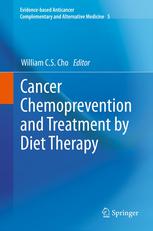

Most ebook files are in PDF format, so you can easily read them using various software such as Foxit Reader or directly on the Google Chrome browser.
Some ebook files are released by publishers in other formats such as .awz, .mobi, .epub, .fb2, etc. You may need to install specific software to read these formats on mobile/PC, such as Calibre.
Please read the tutorial at this link: https://ebookbell.com/faq
We offer FREE conversion to the popular formats you request; however, this may take some time. Therefore, right after payment, please email us, and we will try to provide the service as quickly as possible.
For some exceptional file formats or broken links (if any), please refrain from opening any disputes. Instead, email us first, and we will try to assist within a maximum of 6 hours.
EbookBell Team

4.8
44 reviewsCancer is one of the leading killers in the world and the incidence is increasing, but most cancer patients and cancer survivors suffer much from the disease and its conventional treatments’ side effects. In the past, clinical data showed that some complementary and alternative medicine (CAM) possessed anticancer abilities, but some clinicians and scientists have queried about the scientific validity of CAM due to the lack of scientific evidence. There is great demand in the knowledge gap to explore the scientific and evidence-based knowledge of CAM in the anticancer field. With this aim, a book series is needed to structurally deliver the knowledge to readers.
Throughout the past few years, the cancer chemopreventive potencies and treatment effects of a number of natural dietary agents present in different food sources have been evaluated by various experiments. Some of them have progressed to early clinical trials. This volume is a specialized book presenting the research evidence relevant to the use of specific diet therapy in cancer chemoprevention and treatment. We begin with lessons learned from dietary resveratrol as an effective agent with anticancer properties against malignancies, followed examples of flavonoids from fruits and vegetables in the prevention and treatment of cancer. Evidence for the beneficial influence of diet enriched with flax seed oil and green tea on cancer will be reviewed. Soy food intake may enhance the effects on anticancer treatment for breast cancer, whereas lycopene-rich foods may possess chemopreventive efficacy. There are also discussions on the contribution of the cancer preventive effects of the antioxidant-rich foods and Mediterranean diet. In addition, the modulation of proteasome pathways by nutraceuticals is highlighted. Finally, we close the book with a discussion on the attenuation of cell survival signaling by bioactive phytochemicals in the prevention and therapy cancer.